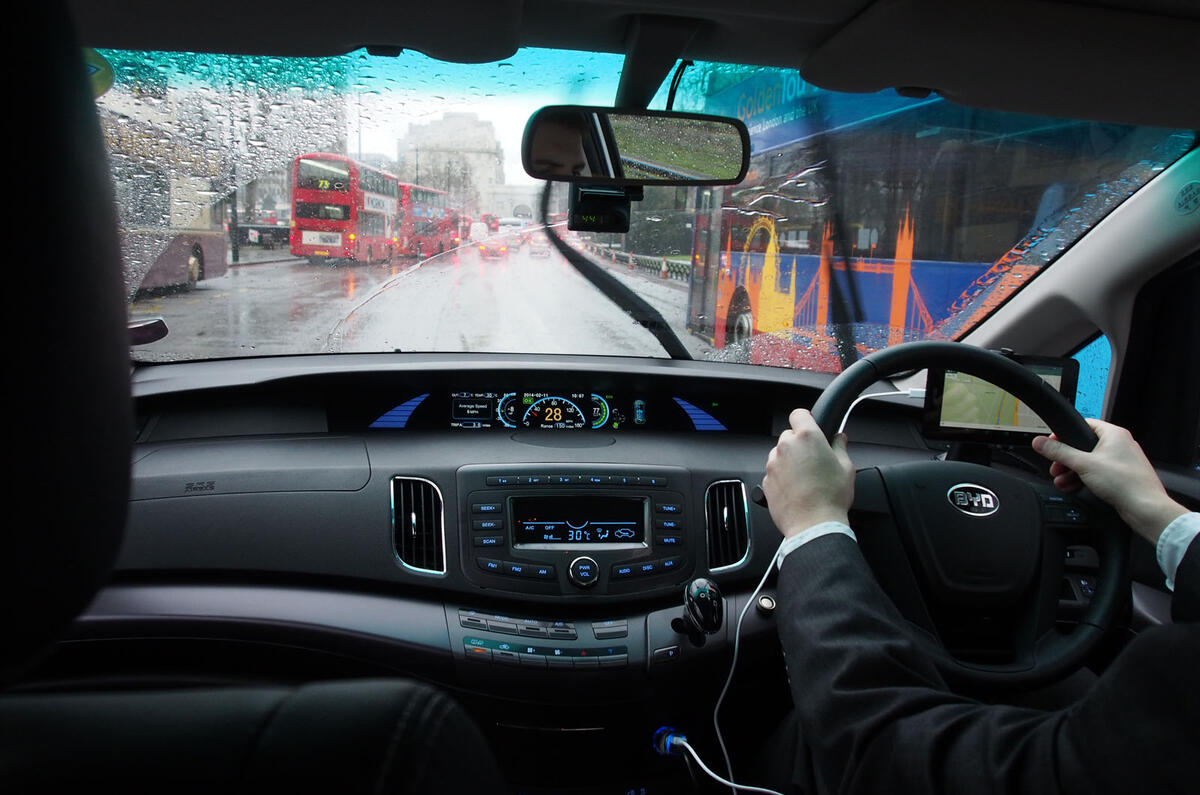I did something this morning that people in London haven’t been able to do for – perhaps – 115 years.
My phone pinged into life at 7.00am telling me my cab was on its way and by 7.45am I was being driven into central London in a Transport for London-registered BYD E6 electric mini cab.
By a bizarre coincidence, I was in Hong Kong last March when these Chinese BYD E6 cars were added to the local taxi fleet. Hong Kong, like many Asian cities, has low-pollution taxi fleets, using old-school Toyota saloons powered by compressed natural gas (CNG).
Arguably, Hong Kong would struggle to seriously improve on the tailpipe pollution levels its current taxi fleet enjoys, the area suffering far more from pollution generated by local coal-fired power stations and factories on the Chinese mainland.
It’s the opposite story in London – and other cities such as Oxford and Birmingham - where the EU air quality regulations (an outstanding example when the EU is of great help) are busted with comical speed by local transport rather than industry.
Oxford Street in central London and Putney High Street in the inner southwest suburbs usually exceed the EU's annual pollution limits within the first few weeks of a new year. Blame belching buses and taxis, ancient commercial vehicles and even badly maintained and badly driven newish vehicles.
Diesel is a problem. Over Christmas I found myself following a 2006 Toyota Yaris diesel, which was belching soot, so even modern, small vehicles can contribute to the issue.
London mayor Boris Johnson recently unveiled a competition to replace the classic black cab. All three entrants had petrol-powered range-extender transmissions. Johnson has also leaned on Nissan not to sell the 1.5-litre DCi diesel version of its new London cab.
Diesel is an inherently dirty fuel. It can be cleaned up, but EU6-compliant diesel engines are expensive and complex, needing particulate filters and, often, ammonia injection systems. Indeed, in base form, the new Mercedes C-Class costs £2500 more in diesel form than it does in petrol form, giving you some idea of the cost of clean diesel.
A pure battery-powered taxi has always been thought a distant dream because of the problems with a short range and difficulty in charging. Chinese company BYD – primarily a battery manufacturer – has ploughed on with the technology and currently has a fleet of BYD E6 cabs in Hong Kong, Shenzen in China and in the Netherlands. It has also just launched two battery-powered buses in London, so it clearly knows its business.
Thriev, the company running the BYD cars, won’t say how much it costs to buy the E6 (which has a notably big battery pack), but it plans to run them 24 hours a day, seven days a week and the cost of ‘refueling’ looks like being between £5-£8 per day compared to around £50 for a conventional Black Cab.




Join the debate
Add your comment
Diesel is a problem
Sounds like a perfect application for electric vehicles
For once the high capital cost is easy to ignore knowing that it will be offset by much lower running costs. But it's a pity that it takes an enterprising Chinese company to spot the potential...